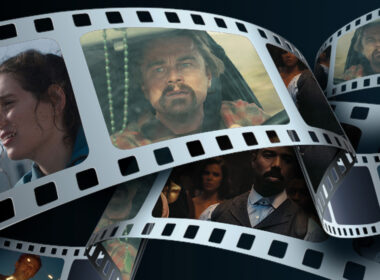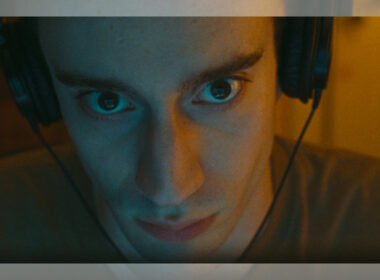Director: Luca Guadagnino
Writer: Nora Garrett
Cast: Julia Roberts, Michael Stuhlbarg, Andrew Garfield, Ayo Edibiri, Chloë Sevigny
Back home they teach Philosophy in year 10 and 11 of high school. I remember my teacher as this young, hip, intellectual debonair who wore tight jeans and distressed leather jackets with cowboy boots. He would ask a student to read a passage from someone like Descartes and after he would lean back on his chair, look up at the ceiling, and ask “what is the thesis?” For a sixteen year old with basic critical thinking skills, this is a daunting question, and I seemed to remember he was rarely satisfied with our rudimentary answer. What he was trying to teach us was how to pay attention to every idea in a text. Nothing is accidental, and if ideas contradict themselves, there’s a point to it.
Watching Luca Guadagnino’s new film, his second release this year, After The Hunt, my teacher’s voice kept echoing in my head. What is the thesis?
The premise is thus. At Yale University, Alma (Julia Roberts) is a philosophy professor hoping to make tenure soon. She hosts parties with her husband Frederik (Michael Stuhlbarg) for her colleagues and students, of which it includes fellow, younger, professor Hank (Andrew Garfield), who is also hoping to get that same tenure spot, and star student Maggie (Ayo Edibiri). After the party, Hank takes Maggie home and it goes exactly as expected. The following day Maggie reveals to Alma that Hank sexually assaulted her and she’s about to take the information to faculty.
It’s on the details that Guadagnino hints at what he’s trying to say. Alma is forced to take a side, between her friend (and potentially more than that), and believing a young black woman who can also help her career. It just so happens that on every turn there is a poorly kept secret that undermines everyone’s intentions. The only two honest people in this house of cards is Alma’s colleague and therapist Kim (Chloë Sevigny), and Frederik, also a therapist (what is the thesis?) but a gentle and observant husband who is not afraid to speak his mind to Alma.
Central to theme there’s a generational rift at play. Alma is a Gen-Xer with a lavish lifestyle of elegant intellectual mixed with alcohol abuse. Hank is a bearded millennial who unashamedly flirts with all women, younger or older. And Maggie is a Gen-Zer who lives with a non-binary law student and takes every opportunity to organise protests. But this is also not the thesis.
Guadagnino’s, and his writer Nora Garrett, make a point to highlight the similarities between those three. As different as they like to say their generations are (right at the start the three are having a conversation about that), it’s the privilege that unites them. All three, educated in the best and most expensive universities in the world, revel in the fact that their minority status (to the exception of Hank who is white, cis-male, and straight) means nothing in the face of their social status. Even Maggie who boldly brings up her queerness and race, suffers from the fact that she’s actually a mediocre student with rich parents who have donated a fortune to the University. But that is also not the thesis.
Then there’s Guadagnino’s deliberate misdirection. The credits at the start are made in the style of all Woody Allen films, a wink so blatant it has to be a reference. But the point isn’t to elevate Allen and his fall from grace, but to point him out as a frame of reference. For most of the film it feels like Maggie lied about what happened, but close to the end another piece of information shifts the tables. Secrets are found in the most unexpected places (an old love letter hidden in a bathroom cupboard? Pills inside a box of files?) but they mean nothing out of context, which is exactly why Guadagnino puts them there. A way for us to question our tendency to over analyse things we know nothing about.
In spite of all these complex ideas, After The Hunt is probably Guadagnino’s weakest film. A far-cry from the exciting excess of Challengers, the heartbreaking romanticism of Bones and All or the ecstatic experimentation of Queer. It feels like he needed more depth to make an impact. It flies too close to the sun to be misunderstood as a critique of “cancel culture” when in fact, when you look at the thesis, it’s a reminder that three generations of rich spoiled people will always react in the same selfish way.
The point is not if Hank did it or not. Of course we also trust the victim. The point is how no one seems to understand how to navigate these complicated traumatic situations without veering towards a vague political statement. For a personal and emotional account of what happens to the victim of sexual abuse, earlier this year Sorry, Baby came out and it’s a vastly superior film. After The Hunt is not about that, but that’s only evident when you constantly question it, as you’re supposed to.
Verdict: 4 out of 5
For curious philosophers who have once been accused of suffering from lack of emotional empathy.




